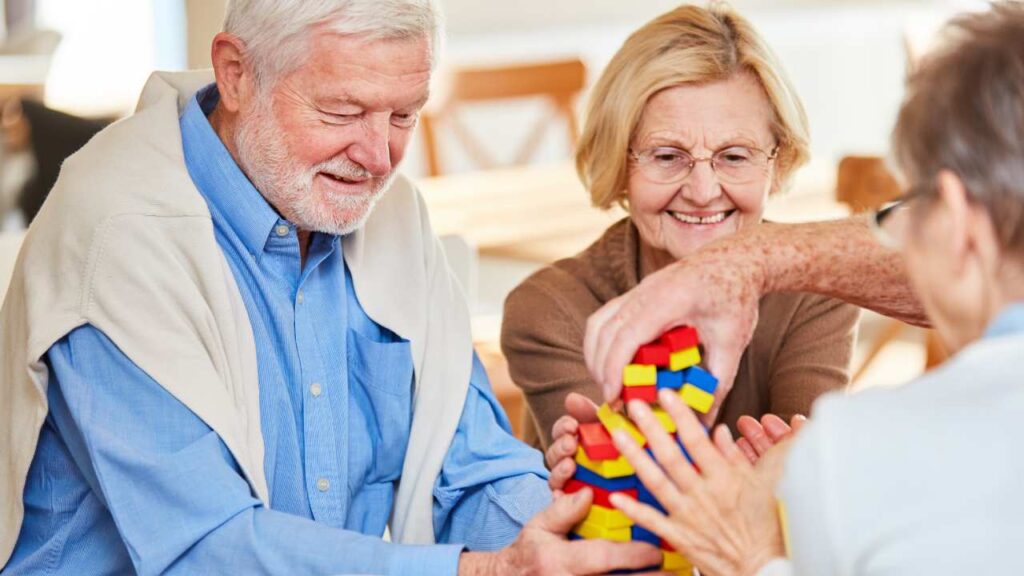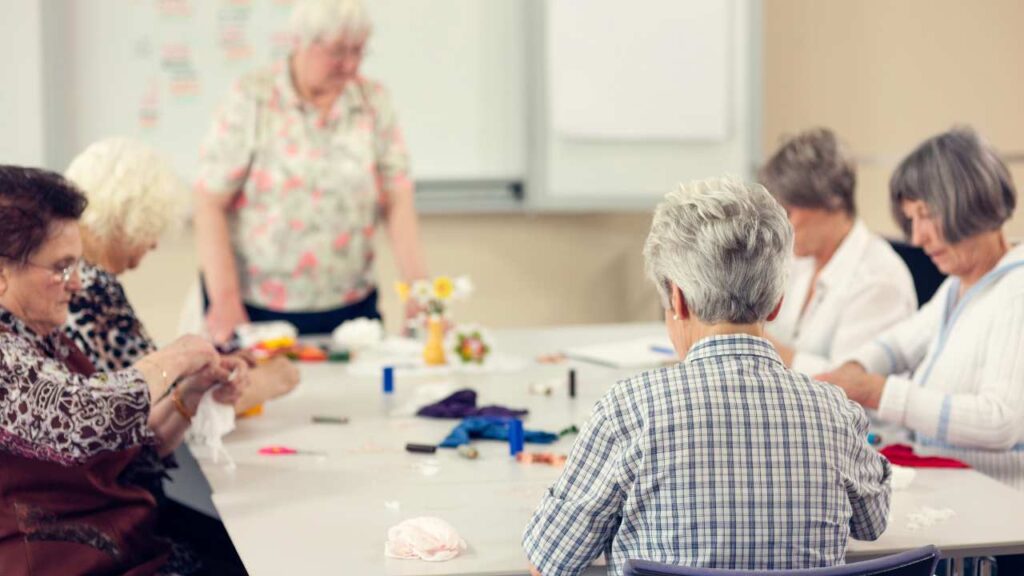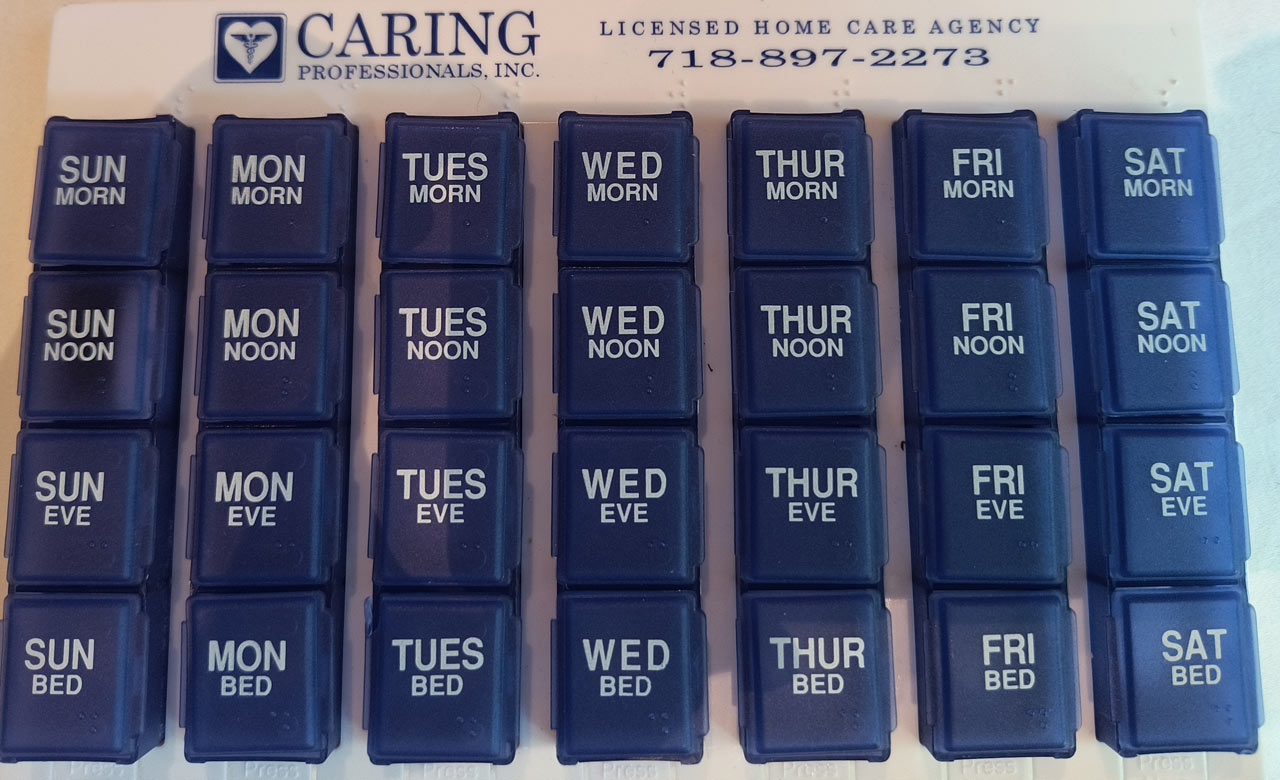You are a caregiver for a person who has some memory loss. You may be a child working in the CDPAP program to tend your father’s personal care needs. You may be a spouse or partner to someone with an Alzheimer’s diagnosis. You spend much of your time with the senior and know they could be getting out more and socializing. He has personality. He has interests. He has a sense of humor, and he needs to get out and his old stomping grounds don’t work well anymore.
You don’t want him to become depressed. You know that communicating is not always easy because he recognizes that he makes many faux pas. He gets embarrassed in public and frightened sometimes. Social isolation is not good for him. He’s also retreated from things that used to give him joy and his day meaning. You want to keep him from being bored and help him achieve a better quality of life.
Wouldn’t it be great if you could go to a safe convivial gathering of similar seniors and their family members to chat, do an art activity, sing, and engage? Memory cafes are just that! They are social groups for people living with memory impairments who have a program together, social time, and snacks. They are becoming ever more popular because they are pleasant, periodic (usually once a month), and are fun!

The other pluses are that they build connections among people affected by dementia. They are casual. They are stimulating and foster a sense of belonging to a community. They aren’t focused on services or a support group atmosphere even though some materials are usually available at the times the groups meet. It’s a level playing field for both seniors who can focus on what they can still do and their caregivers who get it. It’s also a break from regular routine and can offer caregivers tips from other caregivers.
Memory cafes are not respite programs, but they do give caregivers a break from thinking about dementia. They are inclusionary but are not for paid caregivers outside the family. They are for care partners who may be spouses, partners, adult children, and friends. They are held in public/community spaces such as libraries, community centers, congregation facilities, and restaurants which are accessible to people who may use mobility devices and have accessible bathrooms.

Let’s also remember that creativity isn’t necessarily impaired by memory loss. The activities may involve painting, baking, making music, or other crafts. The ability to be a friend is not necessarily affected by memory loss either. The memory café provides a venue for spending time together without the pressures of coming up with topics to talk about, where to talk, and what to do together. They can participate without pressure and will thus feel comfortable, despite impairments. Organizers of these events take pains to foster conversation without pressure. Trained volunteers are often paired with participants for chatting that does not put them on the spot and remind them of what they don’t remember.
Memory cafes came out of Holland in the 1990’s where a psychiatrist put one together to raise awareness about dementia and to provide support for patients and their caregivers. It spread across Europe and began to appear in the US about fifteen years ago. Memory cafes have become very popular, and programs are proliferating because they are needed to bring people with dementia back into the community and don’t take that many resources.

Many programs have been developed by church groups, universities, senior services agencies, and concerned citizens. They vary in programming themes, many of which may provoke reminiscing through activities. Some programs feature animals, wildlife, museum offerings, and horticulture and thus stimulate memory. These stimulate senses that trigger memories. Sometimes caregivers report that they haven’t seen their loved ones engage at such high levels while at home. The memory café that is properly planned with trained volunteers and paid staff, which has carefully planned access, programming, interaction, and coordination is usually a success over time. Participants need time to become comfortable in new environments and to feel safe to respond.
Despite the safety issues of the pandemic, memory cafes continued in US communities. They went virtual. Today most memory café programs are back to in-person events. Check with your local county or city department for the aging for these events in your area or by zoom or video chat.
If you would like to apply for the CDPAP program, click here.
Articles you might be interested in:






